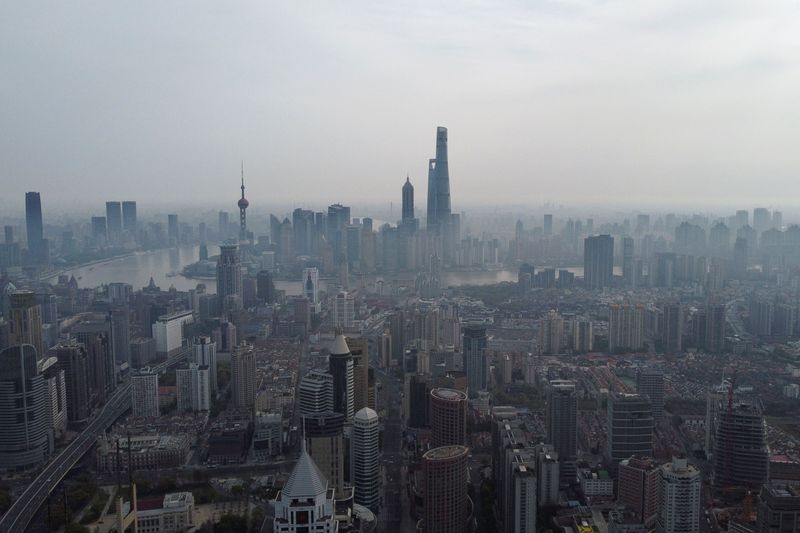
© Reuters. FILE PHOTO: An aerial view shows the Lujiazui financial district and other buildings along the Huangpu river amid a lockdown to contain the spread of the coronavirus disease (COVID-19) in Shanghai, China March 30, 2022. Picture taken with a drone. REUTERS
LONDON (Reuters) – Defaults among emerging market companies continued to pile up in the third quarter due to troubles in Russia as well as China’s property sector, with the volume of bonds trading at distressed levels close to record highs, JPMorgan (NYSE:) said on Tuesday.
The year-to-date default rate for emerging market high-yield firms reached 10.3%, the bank found in its latest default monitor. This was driven by Russian defaults lifting the rate in emerging Europe to 21.7%, while China’s property sector woes saw the default rate across Asia run to 12.8%.
“Russian corporate default activity has been dominated by payment delays and consent solicitations to either extend grace periods or add alternative payment options, which led to inclusion of such bonds in our default metrics,” Alisa Meyers wrote in a note to clients.
Russia’s year-to-date default tally includes over $30 billion of Russian corporate bonds, translating into a default rate of 34.5%, Meyers added.
Excluding the troubled areas of China property, Russian and Ukrainian issuers, emerging markets corporate default rate stood at just 1.2%, with JPMorgan predicting that this could rise to 2% by year-end.
The amount of emerging market corporate bonds that currently trade at distressed levels of less than 70 cents on the dollar remained close to record highs at $185 billion or nearly a quarter of the high-yield segment of the asset class, more than three times where it stood at the start of the year.


Be the first to comment